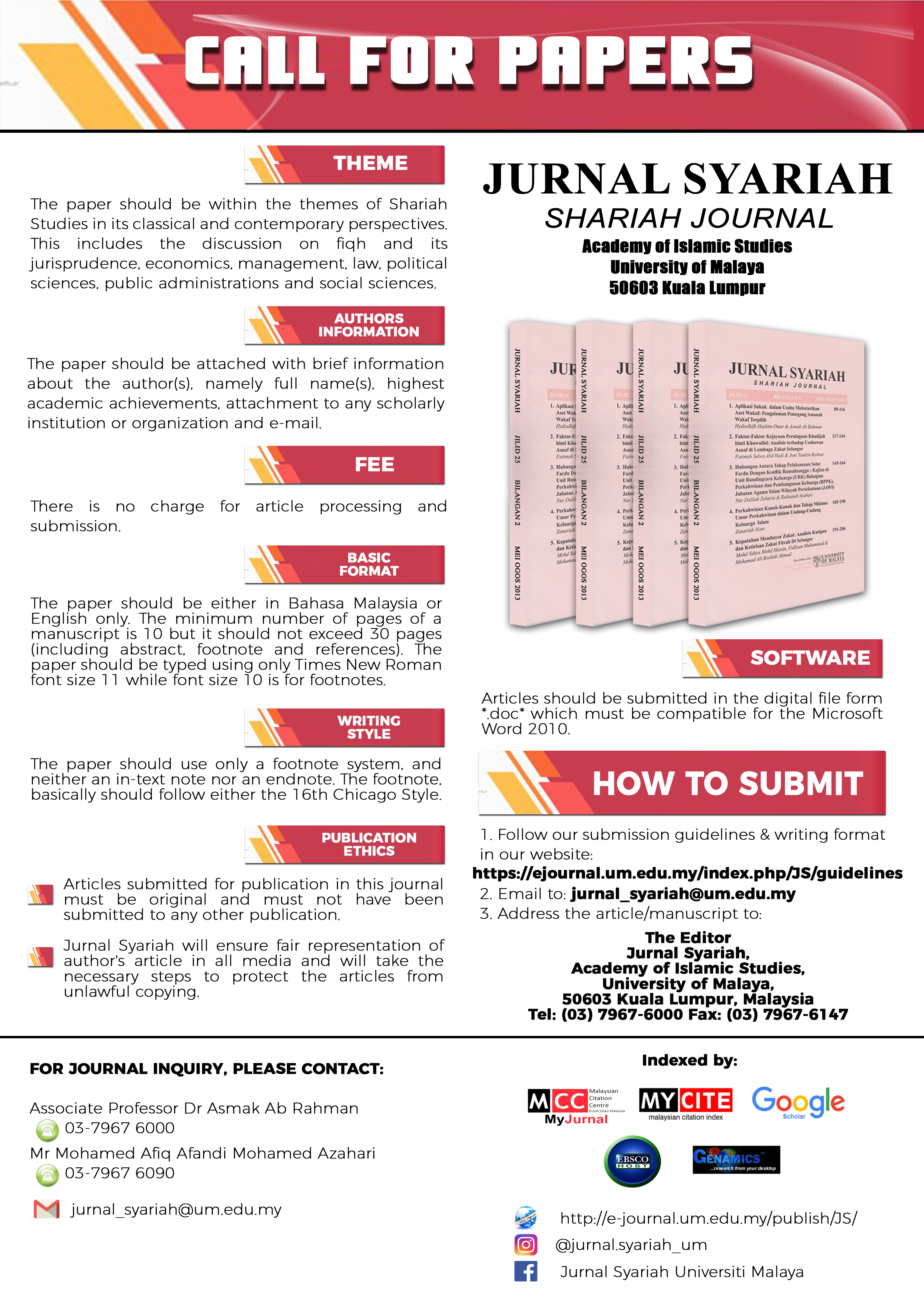HARTA BERSAMA DAN KEDUDUKAN ANAK YANG BERCERAI DARI PERNIKAHAN SIRRI: KAJIAN TENAGA KERJA WANITA (TKW) DI DESA BUNDER KECAMATAN SUSUKAN KABUPATEN CIREBON
Treasure Together and Position of Spirited Children from Wedding Sirri: Students of Women Labor (TKW) in Bunder Village, Susukan District, Cirebon Regency
DOI:
https://doi.org/10.22452/js.vol26no3.3Keywords:
joint treasure, position of child, divorce, sirri marriageAbstract
Sirri marriage is an alternative to the impasse of society whose desire to marry has peaked and filled the inner space, but is unable to carry on marriage because of obstacles and economy. Sirri marriage is a marriage that is carried out in accordance with the conditions of marriage in Islam, but is not registered in the Office of Religious Affairs (KUA) or by the Marriage Registration Officer (PPN). It is called sirri because it is done secretly, closed, secret, or secretly without the publication in the form of a reception. Although in terms of Islamic law sirri marriage does not result in marriage being null or invalid, provided that it meets the marriage principle, namely: the existence of prospective husbands and prospective wives, guardians, witnesses, contracts (ījāb and qabūl), and dowry. But many people of Desa Bunder, Susukan District, Cirebon Regency, married Sirri. This resulted in the illegality of a marriage according to the law in Indonesia, this sirri marriage did not have the legality of formal state law. The Indonesian legal system is not familiar with the term sirri marriage and does not specifically regulate it in a law, so the effect of the sirri marriage has not recorded the marriage as a legal event, and has an impact on the sharing of shared property when the marriage is broken (divorce) and also to the position his son.
Downloads
Downloads
Published
How to Cite
Issue
Section
License

This work is licensed under a Creative Commons Attribution-NonCommercial 4.0 International License.
COPYRIGHT: All rights reserved. Not allowed to be reproduced any part of articles and contents of this journal in any form or by any way, whether electronic, mechanical, photocopying, recording or otherwise without permission in writing from the Chief Editor, Jurnal Syariah.



















